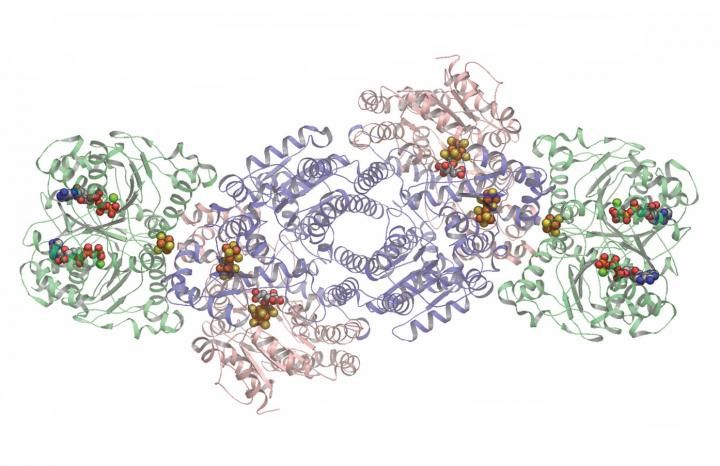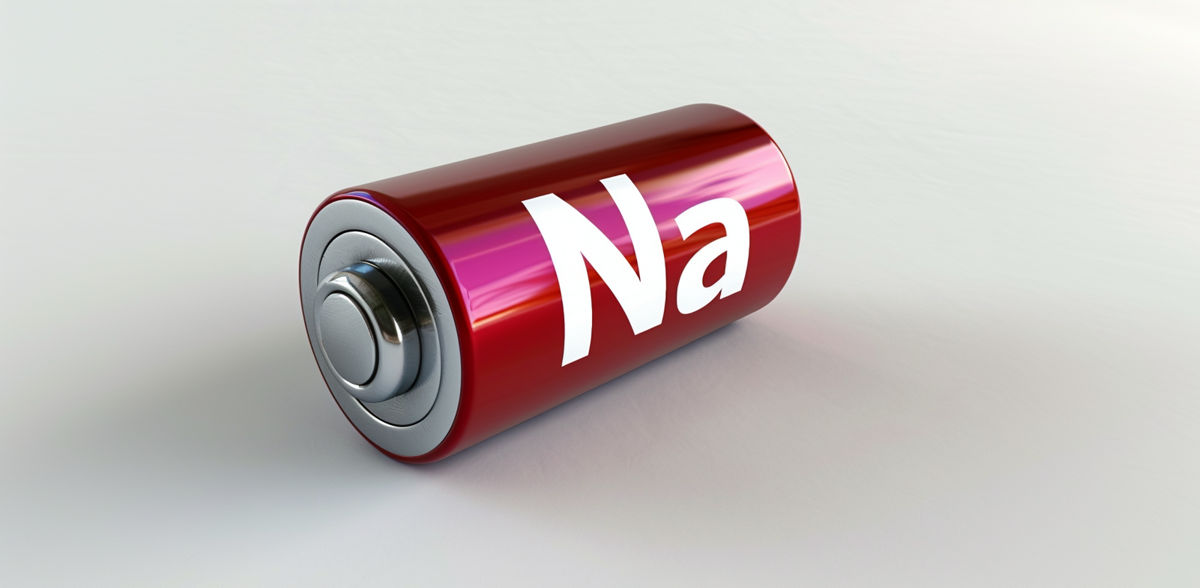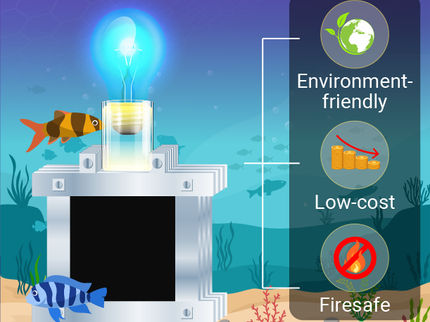Discovery brings all-solid-state sodium batteries closer to practical use
Process that can lead to mass synthesis yields solid sulfide electrolyte with world’s highest reported sodium ion conductivity
The pursuit of greener energy also requires efficient rechargeable batteries to store that energy. While lithium-ion batteries are currently the most widely used, all-solid-state sodium batteries are attracting attention as sodium is far more plentiful than lithium. This should make sodium batteries less expensive, and solid-state batteries are thought to be safer, but processing issues mean mass production has been difficult.
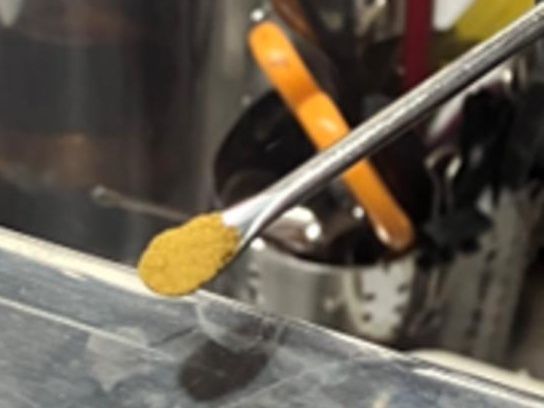
The synthesized solid sulfide electrolyte Na2.88Sb0.88W0.12S4 has the world’s highest reported sodium ion conductivity.
Atsushi Sakuda, Osaka Metropolitan University
Osaka Metropolitan University Associate Professor Atsushi Sakuda and Professor Akitoshi Hayashi, both of the Graduate School of Engineering, led a research team in developing a process that can lead to mass synthesis for sodium-containing sulfides.
Using sodium polysulfides (sulfides with two or more atoms of sulfur) as both the material and the flux, which promotes fusion, the team created a solid sulfide electrolyte with the world’s highest reported sodium ion conductivity—about 10 times higher than required for practical use—and a glass electrolyte with high reduction resistance.
Mass synthesis of such electrolytes with high conductivity and formability is key to the practical use of all-solid-state sodium batteries.
“This newly developed process is useful for the production of almost all sodium-containing sulfide materials, including solid electrolytes and electrode active materials,” Professor Sakuda said. “Also, compared to conventional methods, this process makes it easier to obtain materials that display higher performance, so we believe it will become a mainstream process for the future development of materials for all-solid-state sodium batteries.”
Original publication
Most read news
Original publication
Other news from the department science

Get the chemical industry in your inbox
By submitting this form you agree that LUMITOS AG will send you the newsletter(s) selected above by email. Your data will not be passed on to third parties. Your data will be stored and processed in accordance with our data protection regulations. LUMITOS may contact you by email for the purpose of advertising or market and opinion surveys. You can revoke your consent at any time without giving reasons to LUMITOS AG, Ernst-Augustin-Str. 2, 12489 Berlin, Germany or by e-mail at revoke@lumitos.com with effect for the future. In addition, each email contains a link to unsubscribe from the corresponding newsletter.
Most read news
More news from our other portals
See the theme worlds for related content
Topic World Battery Technology
The topic world Battery Technology combines relevant knowledge in a unique way. Here you will find everything about suppliers and their products, webinars, white papers, catalogs and brochures.

Topic World Battery Technology
The topic world Battery Technology combines relevant knowledge in a unique way. Here you will find everything about suppliers and their products, webinars, white papers, catalogs and brochures.
Topic world Synthesis
Chemical synthesis is at the heart of modern chemistry and enables the targeted production of molecules with specific properties. By combining starting materials in defined reaction conditions, chemists can create a wide range of compounds, from simple molecules to complex active ingredients.

Topic world Synthesis
Chemical synthesis is at the heart of modern chemistry and enables the targeted production of molecules with specific properties. By combining starting materials in defined reaction conditions, chemists can create a wide range of compounds, from simple molecules to complex active ingredients.
Last viewed contents
Molecular motors: Rotation on an eight-shaped path - Chemical engineers have developed the first molecular motor that enables an eight-shaped movement
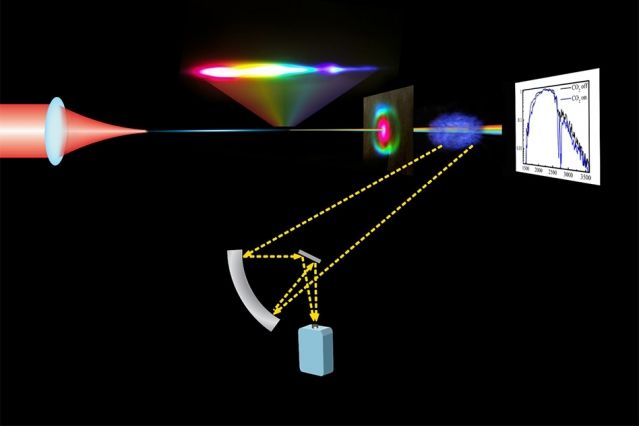
New mid-infrared laser system could detect atmospheric chemicals
XPB
Mitogen-activated_protein_kinase
Scutellaria_barbata
Thermistor
Heulandite
Category:Bisulfites
Category:Medicinal_plants_of_Nepal
Carl_Jung
